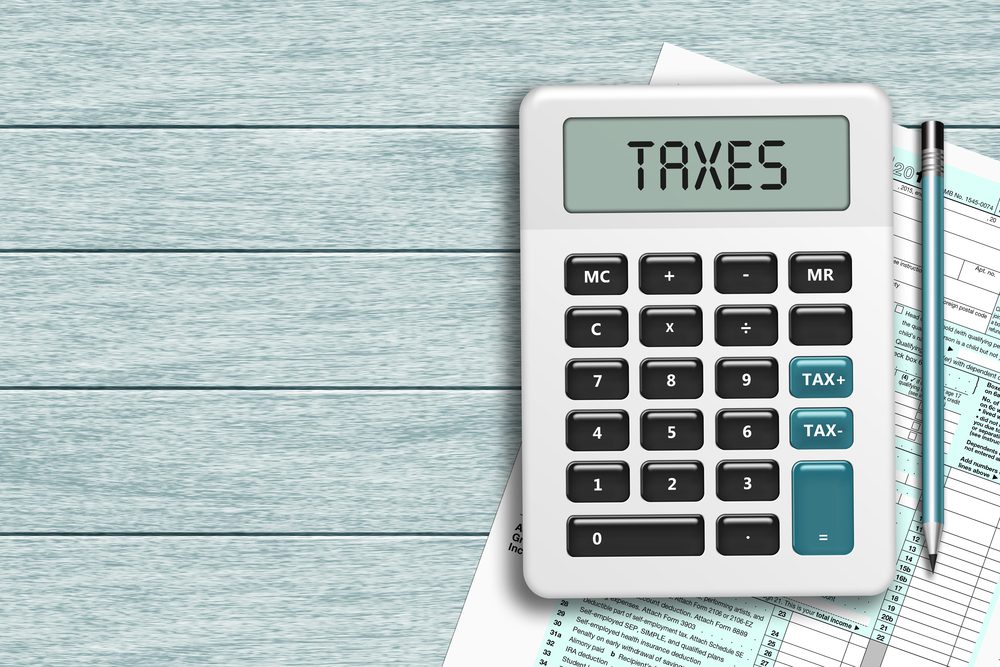Tax season can be stressful for many individuals and businesses alike. With the constantly changing tax laws and regulations, it can be difficult to keep up with the latest updates and accurately calculate taxes owed. This is where tax calculators come in handy.
A tax calculator is a tool that helps individuals and businesses estimate their tax liability based on their income, deductions, and other relevant information. With the tax year of 2023 approaching, many people are searching for reliable and accurate tax calculators to help them prepare for tax season.
Using a tax calculator can save individuals and businesses time and money by providing them with an estimate of their tax liability before filing their taxes. This allows them to plan ahead and make any necessary adjustments to minimize their tax burden. In this article, we will explore the benefits of using a tax calculator for the 2023 tax year and provide recommendations for the best tax calculators available.
What is a Tax Calculator?
A tax calculator is an online tool that helps taxpayers estimate their tax liability for a given tax year. It is designed to simplify the process of calculating taxes, especially for those who are not familiar with the tax code or who may not have the time or resources to calculate their taxes manually.
Purpose of a Tax Calculator
The purpose of a tax calculator is to provide taxpayers with an estimate of their tax liability based on their income, deductions, and credits. Taxpayers can use this information to plan their finances, make adjustments to their withholding, or make estimated tax payments to avoid penalties and interest.
Tax calculators are especially useful for taxpayers who have multiple sources of income, self-employed individuals, and those with complex tax situations. They can also help taxpayers identify tax credits and deductions that they may be eligible for, which can reduce their tax liability.
How a Tax Calculator Works
Tax calculators use a variety of inputs to estimate a taxpayer’s tax liability. These inputs typically include:
- Income: This includes wages, salaries, tips, and other taxable income.
- Deductions: This includes standard deductions or itemized deductions, such as mortgage interest, charitable contributions, and state and local taxes.
- Credits: This includes tax credits, such as the child tax credit, earned income tax credit, and education credits.
- Filing status: This includes whether the taxpayer is single, married filing jointly, married filing separately, or head of household.
Once the taxpayer enters this information into the tax calculator, it uses the current tax code and tax rates to estimate the taxpayer’s tax liability. The tax calculator may also provide information on estimated tax payments, tax refunds, and other tax-related topics.
Overall, tax calculators are a valuable tool for taxpayers who want to estimate their tax liability quickly and accurately. However, it’s important to note that tax calculators are only estimates and should not be used as a substitute for professional tax advice.
Benefits of Using a Tax Calculator
Using a tax calculator can provide many benefits for individuals or businesses. Here are a few reasons why using a tax calculator can be helpful:
- Accuracy: Tax calculators are designed to provide accurate calculations based on the latest tax laws and regulations. By using a tax calculator, individuals or businesses can ensure that their tax calculations are correct, which can help them avoid costly mistakes or penalties.
- Time-saving: Calculating taxes manually can be time-consuming and tedious. By using a tax calculator, individuals or businesses can save time and effort, as the calculator will do all the calculations automatically.
- Convenience: Tax calculators are available online, which makes them easily accessible to anyone with an internet connection. Individuals or businesses can use tax calculators from the comfort of their own home or office, without the need to visit a tax professional.
- Cost-effective: Using a tax calculator is often more cost-effective than hiring a tax professional. Tax calculators are usually free, while tax professionals charge fees for their services.
- Planning: Tax calculators can help individuals or businesses plan their finances better by providing an estimate of their tax liability. This can help them make informed decisions about their finances and plan for the future.
Overall, using a tax calculator can provide many benefits for individuals or businesses, including accuracy, time-saving, convenience, cost-effectiveness, and planning.
Potential Issues and Limitations
Accuracy of Information
While tax calculators can be a useful tool for estimating tax liability, they are not always accurate. The accuracy of a tax calculator depends on the quality of the information entered by the user. If the user enters incorrect or incomplete information, the results may be inaccurate.
Furthermore, tax laws and regulations are subject to change, and tax calculators may not always be updated to reflect these changes. This means that the results obtained from a tax calculator may not be accurate for the current tax year.
Limitations of Tax Calculators
Tax calculators are designed to provide an estimate of tax liability based on the information entered by the user. They do not take into account all the factors that may affect a person’s tax liability, such as deductions, credits, and exemptions.
Moreover, tax calculators may not be suitable for all taxpayers. For example, taxpayers with complex tax situations, such as those who are self-employed or have multiple sources of income, may find that tax calculators do not provide accurate results.
It is important to note that tax calculators should be used as a guide only. They should not be relied upon as a substitute for professional tax advice. Taxpayers should consult a tax professional to ensure that they are complying with all applicable tax laws and regulations.
Choosing a Tax Calculator
When it comes to choosing a tax calculator, there are a few things to consider. This section will highlight some features to look for and reliable sources to use.
Features to Look For
When choosing a tax calculator, it is important to find one that meets your needs. Here are some features to look for:
- Accuracy: The tax calculator should be accurate and up-to-date with the latest tax laws and regulations.
- Ease of Use: The calculator should be user-friendly and easy to navigate.
- Customization: The calculator should allow you to input your specific tax information to provide you with a more accurate estimate.
- Security: The calculator should be secure and protect your personal information.
Reliable Tax Calculator Sources
It is important to use a reliable tax calculator source. Here are some trusted sources:
- IRS: The IRS offers a free tax calculator on their website that is accurate and up-to-date with the latest tax laws.
- Tax software companies: Many tax software companies offer free tax calculators on their websites.
- Financial institutions: Some financial institutions offer free tax calculators on their websites.
In conclusion, when choosing a tax calculator, it is important to consider accuracy, ease of use, customization, and security. It is also important to use a reliable source such as the IRS, tax software companies, or financial institutions.








